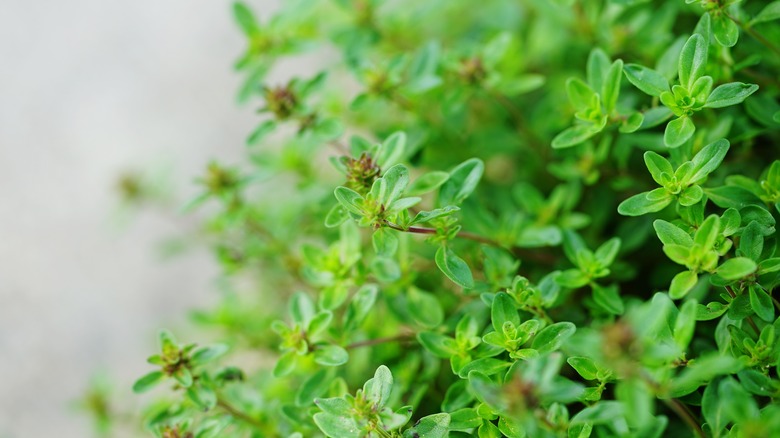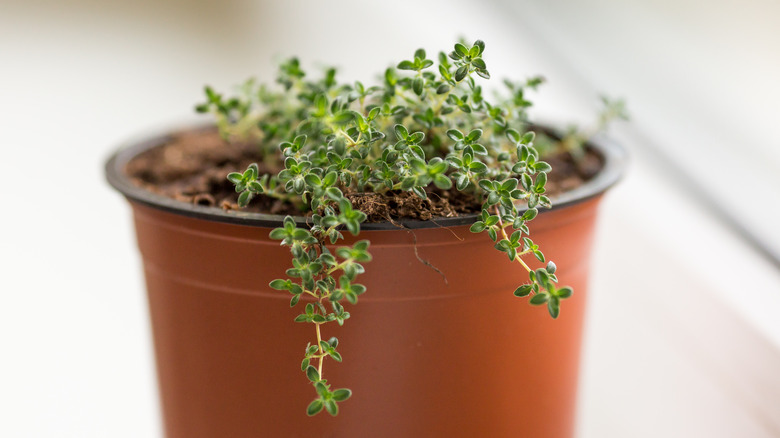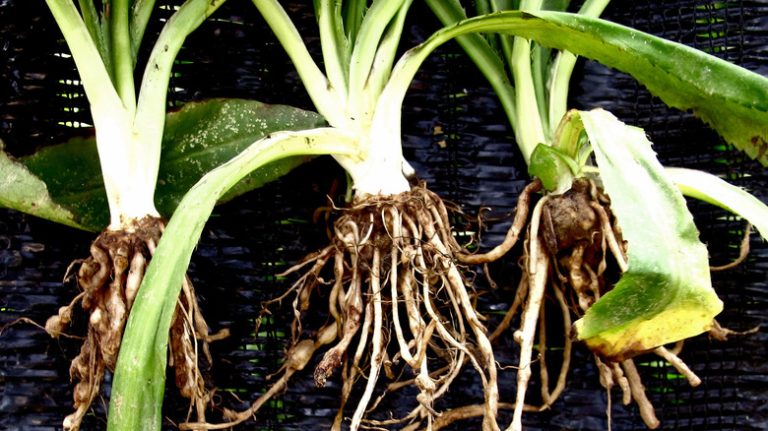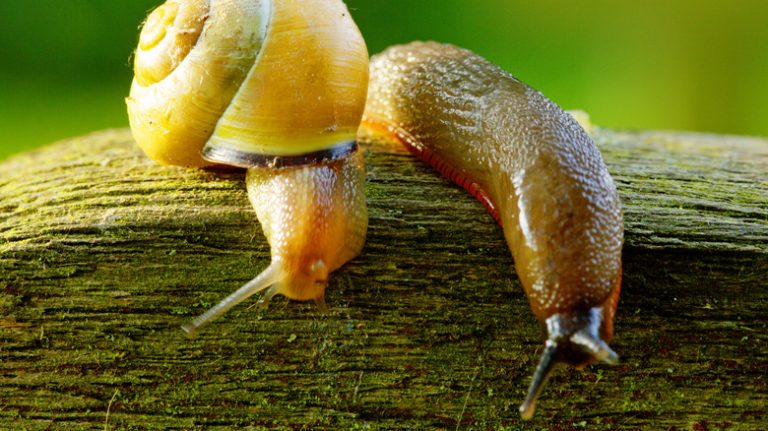Aromatic plants are celebrated not just for their fragrance and culinary uses, but also for their role in repelling mosquitos. Some compounds derived from plants are natural insect repellents, with lemon, eucalyptus, and citronella oils commonly used for their potent qualities. One plant with evidence of being mosquito-repellent is lemon thyme (Thymus x citriodorus) and its creeping variety (Thymus citriodorus Prostate). While incorporating this fragrant plant into your garden may not be so effective in warding off mosquitos on its own, its leaves can be harvested to create a natural mosquito repellent.
Creeping lemon thyme is a mat-forming, evergreen sub-shrub that grows best in rocky or sandy soils and in full sun. The dark green, glossy leaves are small and round, containing the aromatic oils this species is known for. Creeping lemon thyme produces clusters of purple to pink flowers in late spring and early summer. Caring for your thyme plant is relatively problem-free, making this fragrant herb a valuable addition to your culinary or sensory gardens.
How does creeping lemon thyme repel mosquitos?

Lemon-scented thyme varieties, including creeping lemon thyme, contain the volatile compounds citral and thymol, which are known to be effective mosquito repellents. In fact, crushed lemon thyme is shown to have 62% of the repellency of DEET — the active ingredient in many commercially-made insect repellants. Like other members of the Lamiaceae family, such as rosemary and mint, glandular hairs on thyme’s leaves produce oils that build up, causing the hairs to swell. Unlike many flowers that release scents on their own, such as roses, thyme leaves release their scent in the wind or when touched.
So what does this mean for its mosquito-repellent qualities? When moved by the wind, creeping lemon thyme will release small amounts of its fragrance into the air, creating a pleasant, lemony fragrance in your garden. While this may help to deter mosquitos to a small degree, there is little evidence to suggest that this is an effective method in repelling mosquitos, particularly when planted in small quantities. Creeping lemon thyme planted as a lawn may be more effective than just a few pots.
The best way to reap the repellent benefits of this herb is to harvest the aromatic leaves and crush them to release the oil. But before applying to your skin, take care to blend the oils with a fragrance-free moisturizer or base oil — the potency of most essential oils can irritate the skin when applied directly.
How to grow creeping lemon thyme

Creeping lemon thyme grows well in shallow pots, rock gardens, raised beds, or as a lawn. Creeping thyme lawns are a great option in areas prone to drought, making a water-conscious alternative to a grass lawn. They are also decorative, fragrant, and low-maintenance. Creeping lemon thyme lawns can also tolerate light foot traffic, but consider incorporating a path or stepping stones. Thyme species are suited to being grown in USDA zones 5-9.
Like other varieties of thyme, creeping lemon thyme can be grown indoors from seeds or started from cuttings. Alternatively, you can buy young or already-established plants that can be planted outside directly in late spring or early summer. To start indoors, scatter thyme seeds onto a tray filled with seedling potting mix. Maintain temperatures of around 55 degrees Farenheit — they should germinate within 10 to 14 days. Once they are large enough to handle, transplant the seedlings into individual pots and water regularly. They can be planted out in the garden once they have a strong set of roots.
To take cuttings, cut a healthy sprig and remove the lower leaves. Insert the cut end into gritty potting mix or sand and keep moist. Transplant into individual pots once the cutting develops roots, and into the garden once established. Choose a spot that receives full sun and avoid planting thyme plants in wet soils or heavy clay.



